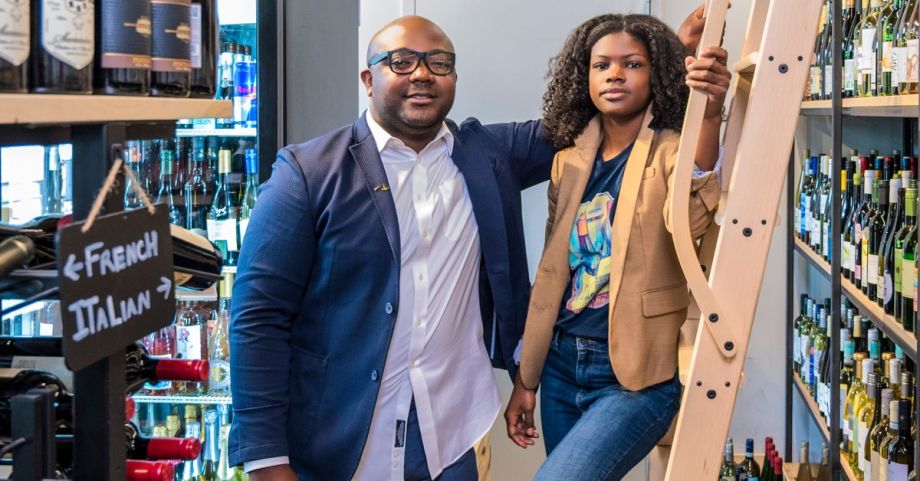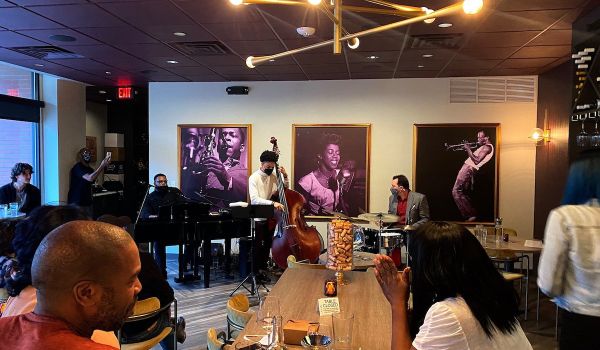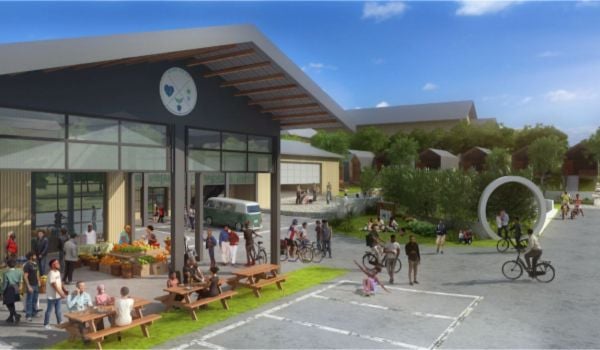Jeryl and Tyrekia Cole of Off the Rox Wine & Beer Shop in the Highlandtown area of Baltimore, Maryland, have been on a community-centered mission to make high-end wines and craft brews more accessible since they opened their storefront in 2018. But the couple’s entrepreneurial roots go back much farther.
“I think what motivates me is entrepreneurial freedom,” says Jeryl, who launched the business with Tyrekia when he was only 28. “It started with my grandmother and her entrepreneurial spirit touched my entire family.” His grandmother’s businesses ranged from convenience stores and bars to an arcade. “She even had her own board game and wrote a book,” Jeryl says. “I talked to her this morning and she asked, ‘What do you think about opening a kids’ art gallery?’”
Off the Rox is in honor of his family name—Rox—which is well known in the Southeast Baltimore community where they were both raised and opened their new business. They also make an effort to feature small-batch, locally crafted wines and brews. Unique selections appear on their list of nearly 300 wines—including “unicorn” offerings, like blends that pair well with barbecue for warmer weather or a smoked lager for the transition to fall.
Jeryl was confident his concept would work, but found that big banks wouldn’t take a chance on him. That’s when he turned to community funding. With support from Baltimore Business Lending (a subsidiary of Baltimore Community Lending), they launched the business in a new six-story mixed residential and commercial facility that replaced a long-term vacant building.
“Most big banks wanted us to be in business for at least three years before they would lend,” he says. “I knew if someone was willing to understand my business model and plan, they would believe in lending to me and it wouldn’t be high risk. I made it a point to pay back my loan well before it matured to show that I was serious about my business.
As the business grows, Jeryl says hiring employees and offering them health insurance is one of his most major accomplishments because he sees firsthand how critical opportunities are to the health of communities. Instead of pushing diversity out of neighborhoods with strict funding and scoring models, he says more lending opportunities for people like him who are from the community are essential.
“Baltimore City is home, and the lack of minority business is a direct correlation to the deeply-rooted bias in the commercial banking world,” he says. “We as a community of all people have to think outside the box and get away from traditional lending. More resources and more awareness are needed. Small business is the backbone of America. We have to make it more accessible to find funding.”
Jeryl says change requires a more collaborative mindset shift. He sees civic leaders and diverse business owners as the ideal pairing.
“There has to be open dialogue with all people to uplift business and development in inner-city communities,” he says. “Economic advancement only works if all sides are on similar pages.”
Bonnie Crockett, director of small business lending at Baltimore Community Lending, says Off the Rox was their very first small business client and exemplified the type of business they look to support.
“Baltimore Community Lending makes small business loans to startups and emerging small businesses in Baltimore City that have strong business plans and reasonable credit but cannot meet the collateral or other qualifications for traditional credit,” she says.
Rather than requiring entrepreneurs to own a home or other assets in order to use them as collateral, Baltimore Community Lending focuses on business training as a more equitable way to mitigate risk and ensure long-term success. For Off the Rox, at least, the approach has worked.
“I hope this helps the next young adult with a plan to lock down funding,” Jeryl says.

This story is part of our series, CDFI Futures, which explores the community development finance industry through the lenses of equity, public policy and inclusive community development. The series is generously supported by Partners for the Common Good. Sign up for PCG’s CapNexus newsletter at capnexus.org.
Hadassah Patterson has written for news outlets for more than a decade, contributing for seven years to local online news and with 15 years of experience in commercial copywriting. She currently covers politics, business, social justice, culture, food and wellness.
















